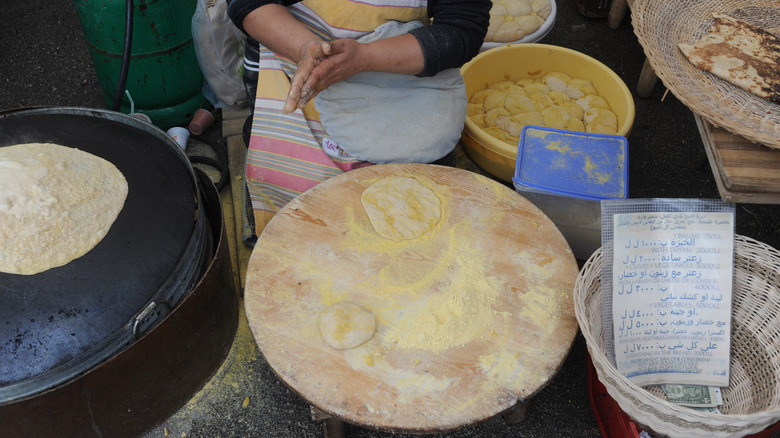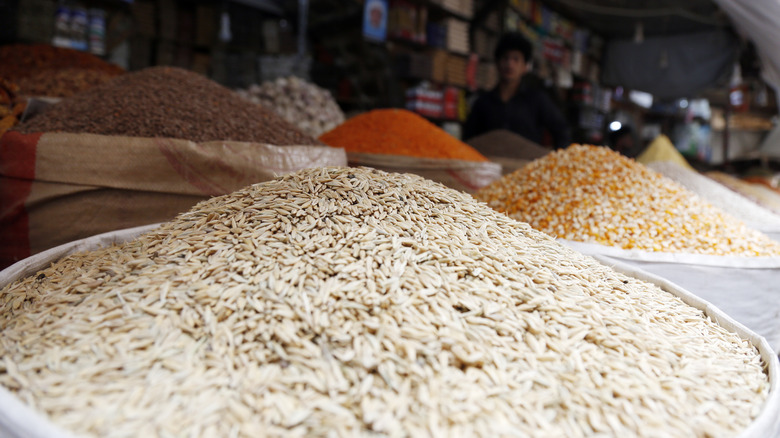Lebanon's Bread Crisis Is Having A Major Impact On Civilians
In yet another crisis created, at least in part, by the Russia-Ukraine conflict, civilians in Lebanon are taking the brunt of circumstances largely beyond their control. As shortages and supply-chain issues plague countries worldwide, they play out uniquely in Lebanon, centering most acutely on the shortage of bread. As a country dependent on imports for all its fuel and most of its food supplies, the crisis for everyday citizens has been building to acute status for months, per CNBC.
Russia's blockade of grain exports from Ukraine has acutely affected the bread supply in Lebanon because of the country's 80% dependence on Ukrainian and Russian wheat. A 2020 explosion at Beirut's port heavily damaged the country's wheat silos, forcing demolition, explains The Times of Israel. Now, the unreplenished reserves and silos leave civilians at the mercy of wheat arriving across the Black Sea. Naturally, too, the war in Ukraine is impacting wheat prices across the globe.
But the roots of food turmoil in Lebanon dig deep, with several elements exacerbating the dilemma. Here's a look at how the Lebanon bread crisis plays out in local homes and bakeries, along with some hope for impending solutions.
Breaking bread in times of conflict
The price of bread impacts everyday citizens in a big way, despite government efforts to subsidize costs. But rising prices for the common pita-style flatbread predate Russian port blockages, having begun with Lebanon's financial crisis and a national currency devaluation exceeding 90% since 2019, per Reuters. Subsequently, the price of bread in 2022 had already risen five times by June, reports Al Jazeera. That's on top of a 30% increase a year before in June 2021.
The bread crisis also puts hundreds of jobs at risk, according to The National, including bread distributors affected by climbing costs. The government sets the price of bread, essentially cutting out third-party vendors delivering it to supermarkets. With bread now in short supply at larger grocery outlets, customers crowd into local bakeries to purchase the dietary staple, leading to long lines and frustration for residents living far from bakery locations.
That frustration accentuates another issue affecting Lebanese communities: Syrian refugees, numbering about 1.5 million since 2011, per Reuters. With scarce bread supplies — all types of bread are affected by the shortage — resentment erupts over more mouths to feed and concerns over refugees sending bread home to Syria or selling it on the black market. A statement from the U.N. refugee agency UNHCR acknowledged an escalation of tension affecting Syrians in the current bread crisis but expressed hope for imminent resolution, citing the impending arrival of 45,000 tonnes of wheat into Beirut and a $150 million World Bank loan for purchasing more grain.

